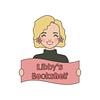Take a photo of a barcode or cover
Perfectly written. Real, three dimensional characters who are also interesting and unpredictable. Tragic story, but a beautiful read. Not the full five stars because I sometimes had to force myself to read on.
DNF. I spent a summer as a file clerk for a law firm, and I was about as bored there as I was reading this. The prose is absurdly and dauntingly thick, reading as one might chew overdone steak. It says nothing in more words than necessary. For its fame as critical reading, it lacks emotion, is subpar to standard, and very much not worth the read.
It was a bit slow to get into, but once you do start, it's a trip. No wonder why the term made it into the lexicon, since it is not an easy choice to make and I'm sure many of us wouldn't be able to do that. Sophie, for all her faults, was a compelling character that you don't really see in post war literature. Most are courageous heroes and Sophie a pathetic and broken woman both from her experiences and her life before.
Stingo is pretty much the same in this regard, and it makes sense that he would be the one to tell her story. He's fairly callow and doesn't really see her, but it makes a hell of a lot of sense for someone like him to narrate her broken life.
Stingo is pretty much the same in this regard, and it makes sense that he would be the one to tell her story. He's fairly callow and doesn't really see her, but it makes a hell of a lot of sense for someone like him to narrate her broken life.
I'm really surprised by this book. Sexual content doesn't bother me and I'm interested in flawed narrators and contradictory characters. But Stingo is a terrible narrator, only describing women in terms of how attractive they are and if he wants to sleep with them. His perspective of Sophie is so tied up in his need to have sex that it never feels like we as readers ever get to know her. Beyond the sexism in the writing, the homophobia, ant-Semitism, and racism that are apparent in the story is never dealt with in a way that makes it seem any more than offensive. This book was published in 1979 but does not carry with it a deep understanding of the Holocaust and complex situations surrounding the issues listed above. It was really difficult to read for its heavy-handedness of the issues, its depiction of Sophie as tease, and for its unwarranted length. I can only imagine what this book would have been like if it had been narrated by Sophie herself.
Well. This is the book that took me forever, and NOT because it was bad. Pretty much because it had no margins and tiny type and 562 pages.
No, this was seriously fantastic. I love Styron, even if he insists on digression after digression, because they have PURPOSES.
It is also one of the most depressing books on the planet, because when Sophie's not getting beaten up by her psycho boyfriend, she's recounting her time in Auschwitz to the narrator. So there's really almost no break in sadness. But there's beautiful writing and it's an actual Experience reading it, as opposed to 'something you read.'
No, this was seriously fantastic. I love Styron, even if he insists on digression after digression, because they have PURPOSES.
It is also one of the most depressing books on the planet, because when Sophie's not getting beaten up by her psycho boyfriend, she's recounting her time in Auschwitz to the narrator. So there's really almost no break in sadness. But there's beautiful writing and it's an actual Experience reading it, as opposed to 'something you read.'
Another confession (I seem to be very fond of them lately): I’ve yet to watch this incredibly famous and great film, for which the amazing Meryl Streep won an Oscar.
I will. I promise.
Right now, let’s just go with the book. I actually began this in the Holocaust Remembrance Day, which ended up being quite appropriate (and then, one of my brothers and I watched Schindler’s List, just to keep the mood).
As a lot of people, I knew which was Sophie’s choice. And I expected the book to be very different from what it was. The novel opens in the voice of a young writer, Stingo. As any respectable struggling author, he’s starving and basically homeless after being from his job. So he moves into a cheap boarding in Brooklyn (again, as any respectable writer). There, he’s thrown in the midst of the turbulent relationship of his neighbours: Nathan and (finally!) Sophie.
Both of them are incredibly interesting (of course, any author worth their weight is always drawn to interesting people), and Stingo is fascinated by their dynamics. Basically, by how they fight and reconcile in a matter for hours.
Slowly, throughout the book, Sophie gives Stingo the story of her life. This is one of the most interesting aspects of the book, as Sophie is a bit of liar. Okay, a huge liar. Only in the very end does she tell Sting the whole truth. Though she always tells a story that could be true, there are a lot of details which she lives behind. She was taken into Auschwitz for smuggling meat for her dying mother and her children; the titular choice refers to one a Nazi doctor forced her to take. She has to choose which of her children will be gassed immediately and which one will be sent to the camp (to die later). She chose to have her daughter sent into the chamber, the decision haunts her entire life and shapes her later life. Her relationship with Nathan (who is Jewish, but born and raised in the US) is one of the unhealthiest I’ve ever read (including Twilight). They fight and insult each other all the time. And he treats her awfully, but she thinks she deserves it so she doesn’t fight back.
Throughout all the book, Sophie talks only about the boy, but in the climax she finally reveals having a boy and a girl . Despite her choice, she never got to learn what happened with her son and doesn’t know even whether he made it out of Auswitchz.
I liked how the book develops Sophie’s story, little by little. As she gave small bits, it made the book very interesting, because it makes you want to keep reading. You want to know what happened and why she’s so broken. The parts where Stingo talks about his life were the most boring. I’m sorry, his first world problems were completely irrelevant next to Sophie’s tragedy. I want to hear the story of a freakin’ Auswitchz survivor. Those are important things. He wanting to have sex was just filler.
Anyway, I can recommend it a lot. It’s good and keeps you going, so that’s always a good thing.
I will. I promise.
Right now, let’s just go with the book. I actually began this in the Holocaust Remembrance Day, which ended up being quite appropriate (and then, one of my brothers and I watched Schindler’s List, just to keep the mood).
As a lot of people, I knew which was Sophie’s choice. And I expected the book to be very different from what it was. The novel opens in the voice of a young writer, Stingo. As any respectable struggling author, he’s starving and basically homeless after being from his job. So he moves into a cheap boarding in Brooklyn (again, as any respectable writer). There, he’s thrown in the midst of the turbulent relationship of his neighbours: Nathan and (finally!) Sophie.
Both of them are incredibly interesting (of course, any author worth their weight is always drawn to interesting people), and Stingo is fascinated by their dynamics. Basically, by how they fight and reconcile in a matter for hours.
Slowly, throughout the book, Sophie gives Stingo the story of her life. This is one of the most interesting aspects of the book, as Sophie is a bit of liar. Okay, a huge liar.
Throughout all the book, Sophie talks only about the boy, but in the climax she finally reveals having
I liked how the book develops Sophie’s story, little by little. As she gave small bits, it made the book very interesting, because it makes you want to keep reading. You want to know what happened and why she’s so broken. The parts where Stingo talks about his life were the most boring. I’m sorry, his first world problems were completely irrelevant next to Sophie’s tragedy. I want to hear the story of a freakin’ Auswitchz survivor. Those are important things. He wanting to have sex was just filler.
Anyway, I can recommend it a lot. It’s good and keeps you going, so that’s always a good thing.
Could barely finish the first chapter - narrator was insufferable and prose was fluorescent purple. Shame, because I've heard good things, but I won't make myself slog through that. YMMV.
This book wasn't quite what I expected (not that any book is obligated to be what I expected). It's roughly half about the Holocaust and half about the narrator's quest to get laid. I'm not sure how the latter was meant to relate to the former, but that might be my failure as a reader. (I guess it's partly a coming-of-age novel because how do boys become men? They fight a war or they have sex, and this kid doesn't get to fight in a war.) Anyway, I appreciated the insights on guilt and evil and moral courage and culpability. It's a powerful, depressing story.






